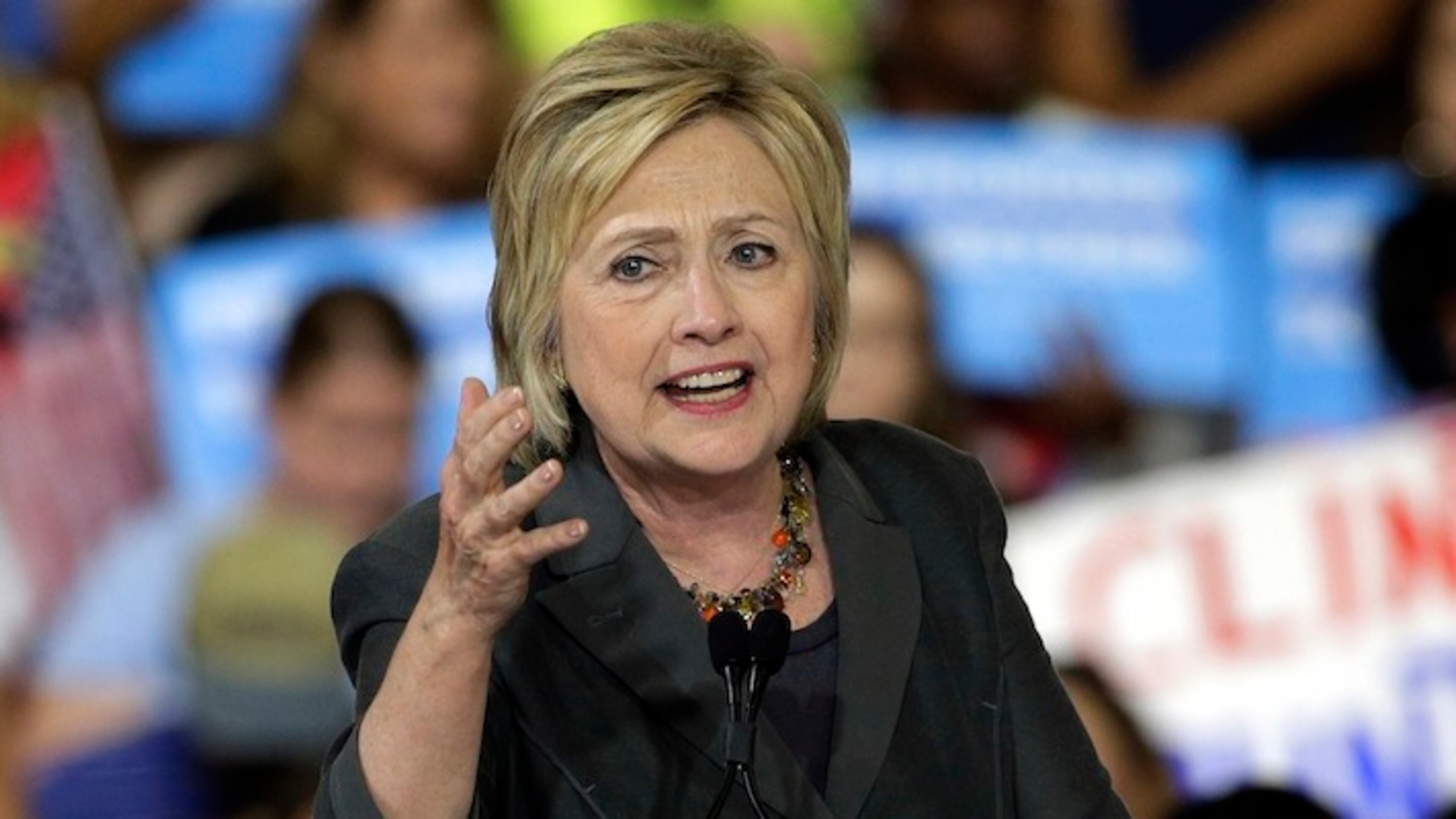CQ Roll Call survey: Democrats' confidence hits new heights

WASHINGTON -- Democratic congressional aides have never felt more confident about their party's chances in this year's election than they do right now.
That's the takeaway from CQ Roll Call's June Capitol Insiders Survey.
Democrats have felt good for a while, of course, about Democrat Hillary Clinton's chances of beating Republican Donald Trump in the presidential election, as well as their prospects for retaking the Senate majority, since Republicans are defending many more seats and several in traditionally Democratic states.
But Democrats are now thinking seriously about the House majority, a goal that once seemed impossible. Four in five Democratic aides who responded to the June survey said they thought Democrats would make significant gains there.
"They know it's a heavy lift and a long shot, but that there is a shot at all is news," says Brendan Daly, whose former boss, Nancy Pelosi of California, could return as House speaker if Democrats win 30 seats in November.
That idea seemed less likely, even to Democratic aides, as recently as March. When CQ Roll Call asked the same question then, only 62 percent thought Democrats would make significant gains.
In June, more than nine in 10 Democratic respondents said they'd win the Senate, while nearly all of them said Clinton would beat Trump. Two-thirds of the Democrats said Clinton would win in a landslide.
That marked a recovery from the May survey, when only a bit more than a third of the Democrats said Clinton would run away with it. The new finding surely reflects the tough month Trump has had, in which he reported anemic fundraising and fired his campaign manager.
In June, 96 Republican staffers and 124 Democrats filled out CQ Roll Call's survey, which was emailed to aides on June 21. They had until June 28 to respond.
Republican aides remain worried, but there are signs they are adjusting to a world in which a former reality TV star is the party's standard bearer. Nearly a third of the GOP aides think Trump has a shot at beating Clinton. Four in 10 expect to retain the Senate and a solid majority said Democrats won't make a run at the House.
Beneath the headlines about recent national polls showing Clinton with a solid lead, Republicans are seeking out glimmers of hope. They found one in June's Wall Street Journal-NBC News poll, which showed the country evenly split between those who would prefer a Democratic Congress and those who'd prefer that Republicans retain their majorities.
Republicans have traditionally out-performed this generic ballot test and Neil Bradley, a former aide to House Majority Leader Kevin McCarthy of California who now is chief strategy officer of the Conservative Reform Network, feels heartened by the result. "This is the first indication I've seen that voters may be differentiating between the top of the ticket and congressional races," he says.
And some Republicans are starting to grapple with the unpredictable politics of the moment, from Trump's surprising rise to the vote last week by Britain to exit the European Union, and wonder whether it all might work out for them in the end.
"As much evidence as there is that Hillary is going to be the next president, and win comfortably, anyone who takes it for granted is not paying attention to anything," says Sam Geduldig, a former aide to Republican Rep. John A. Boehner of Ohio who's now a partner at the CGCN Group lobbying firm. Geduldig stresses that he's skeptical that Clinton's lead in the national polls is as solid as it seems.
Both the Republican and Democratic aides who filled out the survey now predict that this Congress will not be able to fulfill its most fundamental job: enacting appropriations.
Majorities on each side say they expect that House and Senate leaders will throw up their hands before the year's out and enact a continuing resolution that will leave fiscal 2017 spending decisions to the next Congress in January.
At the same time, majorities of both Republican and Democratic aides still believe that this Congress will enact at least some of the 12 annual appropriations bills. That, despite the high profile fights that have held up the appropriations process over everything from gay rights to the display of Confederate flag imagery on federal property.
Meanwhile, neither side expects action before the next Congress convenes on either the Supreme Court nominee Merrick Garland or the Trans-Pacific Partnership trade deal, no matter the election results.
If anything gets done, it will have to go through the president-elect, says Bradley, and won't happen in spite of him or her.
"People assume it's easier to act in defiance of a president-elect right after a national election than it is in reality," he says.
More Stories
The Latest

